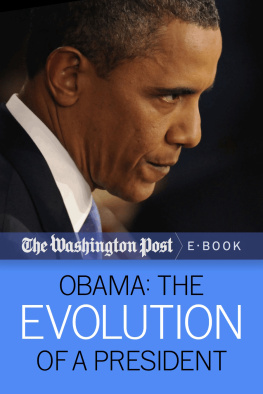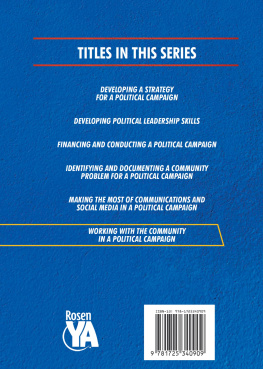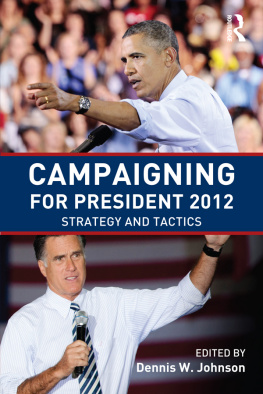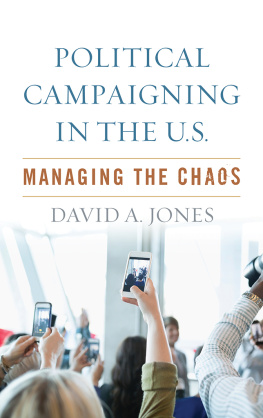
New Media, Campaigning and the 2008 Facebook Election
Some political observers dubbed the 2008 presidential campaign as the Facebook Election. Barack Obama, in particular, employed social media such as blogs, Twitter, Flickr, Digg, YouTube, MySpace and Facebook to run a grassroots-style campaign. The Obama campaign was keenly aware that voters, particularly the young, are not simply consumers of information, but conduits of information as well. They often replaced the professional filter of traditional media with a social one. Social media allowed candidates to do electronically what previously had to be done through shoe leather and phone banks: contact volunteers and donors, and schedule and promote events. The 2008 Election marked a new era where the candidates no longer had complete control over their campaign message. The individual viewer in a campaign crowd with a cell phone can record a candidate s gaffe, post it on YouTube or Flickr and within days millions will be gasping or guffawing. The traditional campaign, with its centralized power and planning, although not dead, now coexists with an unstructured digital democracy. New Media, Campaigning and the 2008 Facebook Election examines the way social media changed how candidates campaigned, how the media covered the election and how voters received information.
This book is based on a special issue of Mass Communication & Society .
Thomas J. Johnson is the Amon G. Carter, Jr. Centennial Professor in the School of Journalism at the University of Texas at Austin, USA. He has studied the role of new media in the presidential election since 1992 and has authored more than 50 articles and book chapters, primarily in the area of political communication. Previous publications include International Media Communication in a Global Age (2009).
David D. Perlmutter is Director of the School of Journalism and Mass Communication and a Professor and Starch Faculty Fellow at The University of Iowa, USA. He is the author or editor of seven books on political communication including Blogwars: The New Political Battleground (2008). He has also written several dozen research articles for academic journals as well as more than 200 essays for US and international newspapers and magazines.
New Media, Campaigning and the 2008 Facebook Election
Edited by
Thomas J. Johnson and
David D. Perlmutter
First published 2011
by Routledge
2 Park Square, Milton Park, Abingdon, Oxon, OX14 4RN
Simultaneously published in the USA and Canada
by Routledge
711 Third Avenue, New York, NY 10017
Routledge is an imprint of the Taylor & Francis Group, an informa business
2011 Mass Communication & Society Division of the Association for Education in Journalism and Mass Communication
This book is a reproduction of Mass Communication and Society , Volume 13, issue 5. The Publisher requests to those authors who may be citing this book to state, also, the bibliographical details of the special issue on which the book was based.
All rights reserved. No part of this book may be reprinted or reproduced or utilised in any form or by any electronic, mechanical, or other means, now known or hereafter invented, including photocopying and recording, or in any information storage or retrieval system, without permission in writing from the publishers.
Trademark notice : Product or corporate names may be trademarks or registered trademarks, and are used only for identification and explanation without intent to infringe.
British Library Cataloguing in Publication Data
A catalogue record for this book is available from the British Library
ISBN13: 978-0-415-67393-8
Typeset in Times New Roman
by Taylor & Francis Books
Disclaimer
The publisher would like to make readers aware that the chapters in this book are referred to as articles as they had been in the special issue. The publisher accepts responsibility for any inconsistencies that may have arisen in the course of preparing this volume for print.
Contents
| Thomas J. Johnson and David D. Perlmutter |
| Matthew W. Ragas and Spiro Kiousis |
| Gary Hanson, Paul Michael Haridakis, Audrey Wagstaff Cunningham, Rekha Sharma, and J. D. Ponder |
| Matthew James Kushin and Masahiro Yamamoto |
| Julia K. Woolley, Anthony M. Limperos and Mary Beth Oliver |
| Juliana Fernandes, Magda Giurcanu, Kevin W. Bowers and Jeffrey C. Neely |
Kevin W. Bowers is a Ph.D. candidate in the College of Journalism and Communications, University of Florida. His research interests include uses of social networks and virtual worlds for educational purposes.
Audrey Wagstaff Cunningham is Instructor in the Department of Communication at Hiram College and a Doctoral Candidate in the School of Communication Studies at Kent State University.
Juliana Fernandes is an Assistant Professor in the School of Journalism and Mass Communication, Florida International University. Her research interests include political communication, affective impact of advertising, and effects of time perspective on voting behavior.
Magda Giurcanu is a Ph.D. candidate in the Department of Political Science, University of Florida. Her research interests include European electoral behavior, political communications, and party institutionalization in post-communist states.
Gary Hanson is Associate Professor in the School of Journalism & Mass Communication at Kent State University. His research interests include new media, politics and journalism ethics and accuracy.
Paul Michael Haridakis is Professor in the School of Communication Studies at Kent State University. His research interests include media uses and effects, new communication technologies, freedom of expression and media history.
Thomas J. Johnson is the Amon G. Carter, Jr. Centennial Professor in the School of Journalism at the University of Texas at Austin, USA. He has studied the role of new media in the presidential election since 1992 and has authored more than 50 articles and book chapters, primarily in the area of political communication. Previous publications include International Media Communication in a Global Age (2009).
Spiro Kiousis is Professor and Chair in the Department of Public Relations at University of Florida. His research interests include political public relations.
Matthew James Kushin is Assistant Professor in the Department of Communication at Utah Valley University. His research interests include political campaigns, online media, and social media.
Anthony M. Limperos is a Doctoral Candidate in the College of Communications at The Pennsylvania State University. His research interests include media uses and effects and new communication technology.
Jeffrey C. Neely is a Ph.D. candidate in the College of Journalism and Communications, University of Florida. His research interests include the role of youth voice in digital communications, community building, and media ethics.
Mary Beth Oliver is Distinguished Professor in the Department of Film=Video & Media Studies and is Co-Director of the Media Effects Research Lab in communications at The Pennsylvania State University. Her research interests include media effects, with a focus on media and emotion, and media and social cognition.







